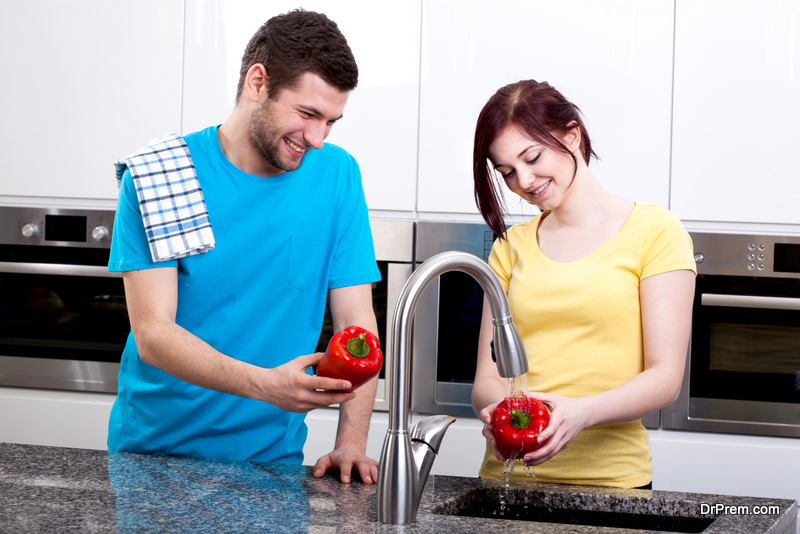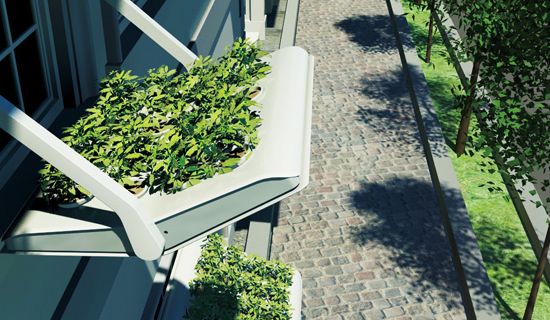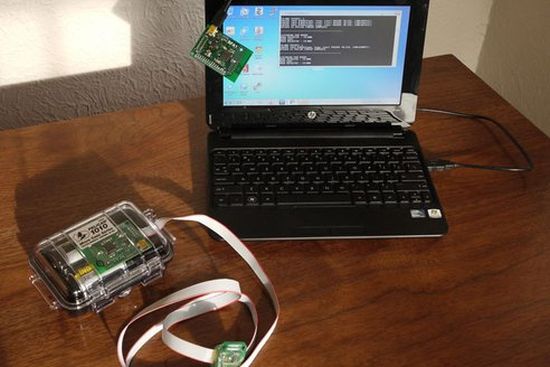One of the biggest problems faced by contemporary human civilization is an acute shortage of water. With the fresh water resources all severely depleted, we are all looking for alternatives to conserve water better and protect whatever is left from being overused. Wastage of water though is one of the biggest evils in this regard and as an individual, you must always try to curb this wastage as much as possible. Keeping in mind the water crisis that is looming over the planet nowadays, it would be best if you try to save as much water as you can. Most of us, however, think only about the bathroom when it comes to wastewater. Waste water in the kitchen, though underrated, is also there and we cannot address the problem of the water crisis in a befitting manner unless we tackle it.
Although people usually discard waste water in the kitchen, we must remember that after proper treatment we can easily use it. Nevertheless, prevention is always better than cure. Therefore, rather than wasting water first and treating it afterward, it would be much better if we don’t waste it in the first place.
12 – Tips to prevent waste water in the kitchen
Here are some useful tips how you can reduce waste water in the kitchen. These tips for saving water will come in handy in the long run as the water shortage is going to get more acute with time.
Steps to be followed to not waste water in the kitchen
1. Use appropriate cooking pots: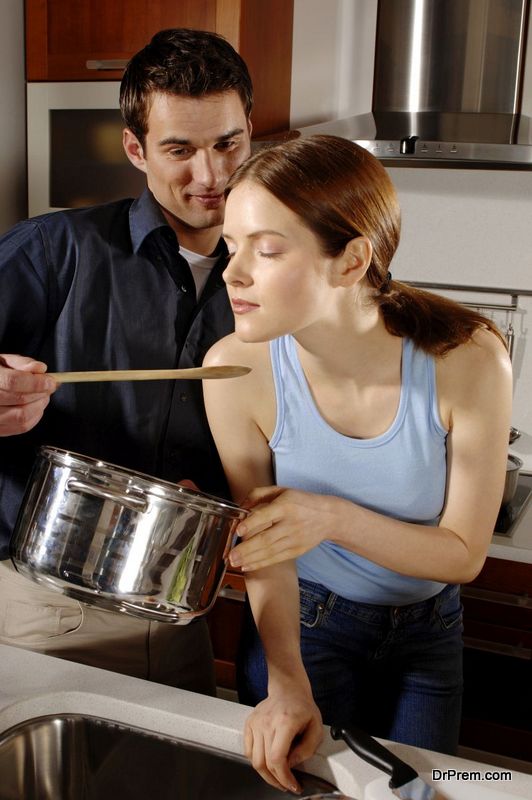
If you are unnecessarily using a large sized cooking pot, you are obviously taking up too much water. So it is important to choose the size of the pot as per the quantity of food to be cooked. If you follow this simple tactic you will end up saving a significant quantity of water.
2. Do not fill the kettle:
Firstly, you do not have to fill up the kettle to the brim to bring it to boil. Secondly every time you do fill it up, it not only leads to wastage of water but also uses up a lot more electricity or cooking gas. So get rid of this habit to not waste water in the kitchen.
3. Defrost differently:
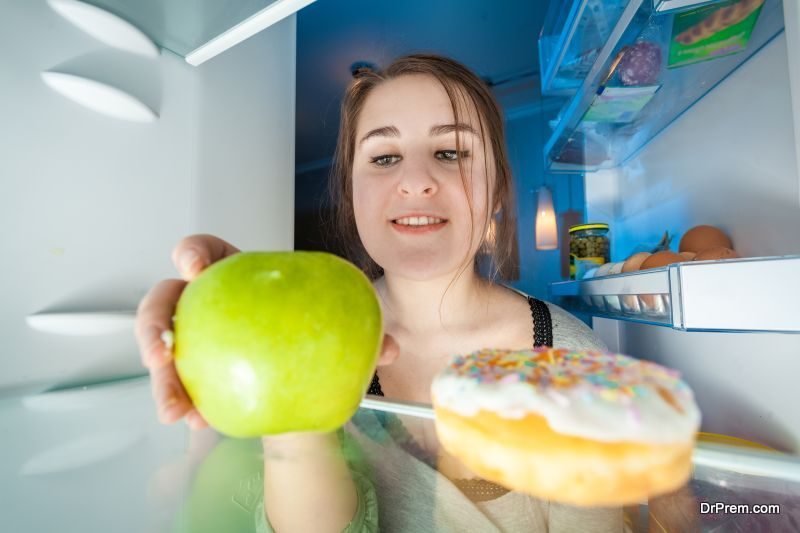
It is a common practice for many to defrost the frozen items under running water. This leads to significant water wastage and the same process can be done by just keeping the food overnight in the fridge out of the freezer. Such little things can end up saving huge amounts of water in the long run.
4. Bottle the water:
This is a basic among the eco friendly home ideas. The practice of taking a glass to the tap every time you feel thirsty leads to a lot of water wastage. This is because the half drunk glasses are often drained before being filled up again. So in order to have a sustainable kitchen fill up bottles to drink water. It will also help you keep a tab of the amount of water you drink.
5. Give excess water to plants:

A lot of water is unnecessarily thrown away in the kitchens. You can always find a nice recycling for such water by giving it to your potted plants. Not only do the plants get watered by this but also it controls the wastage of water.
6. Wash products wisely:
Among the several tips for saving water this one is extremely effective. The fresh vegetables and fruits must be washed properly to avoid contamination. You clearly cannot avoid the process but you can think of such means so as to not involve wasting a lot of water. For instance, start washing the vegetables and fruits in a large container full of water. This instead of just washing them under running water saves a significant amount of water for you in the kitchen.
7. Use the fridge: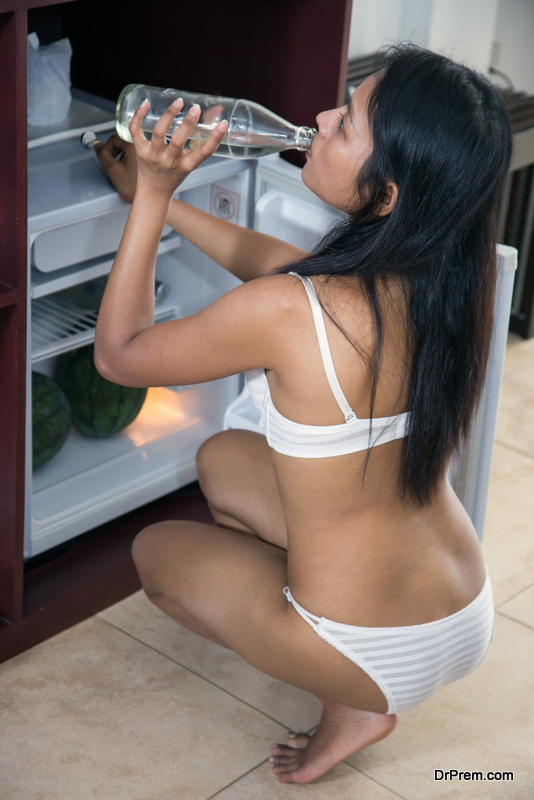
Particularly in hot regions (which are also the places with maximum water shortage) when the tap starts running it gives very hot water. It is a common practice thus to let some part of the water drain before collecting it. This can easily be solved by keeping more water in the fridge so that you always have readily available cold water when you need it. You can then collect the hot water and instead of throwing it away you can keep it in the fridge to cool.
8. Change cooking methods:
Some cooking methods do not fit into the model of eco-friendly home ideas. Steaming or boiling, for instance, takes up way too much water. You can have them replaced with stir-fried cooking or roasting to not waste water in the kitchen.
9. Stop and start: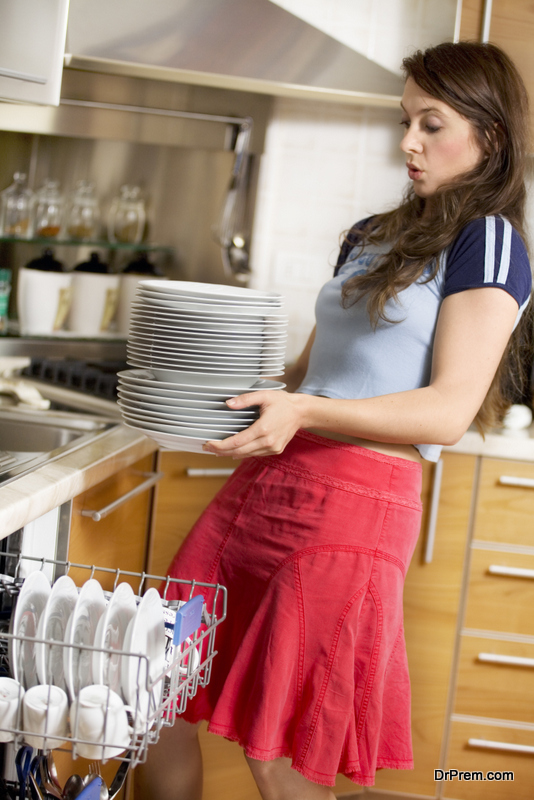
This is a particularly handy technique to not waste water in the kitchen while washing dishes. You do need water to do the dishes and while that cannot be helped you can avoid the continuous stream of running water during the process. What you can do instead is open the tap in short bursts and get your work done in the intervals. If implemented this practice will save you a significant amount of water.
10. Plug the seepage:
In case you have any leaking sources in the kitchen it is extremely important that you plug that source of immediately. Also, if your kitchen sink is provided with a plug it helps minor leakages accumulate in the sink which again can be later reused. Leaks result in a significant water loss and since we are talking of conserving water, it is important to solve the root problem first.
11. Use the ice:
In your quest of saving water you often tend to forget that ice too is a source of water. Ice chunks are often thoughtlessly thrown away. Stop this practice immediately to not waste water in the kitchen and instead give it to the pets drinking bowl or the plants. Remember every drop counts.
12. Use little dishwashing liquid:
If you are using too much of dishwashing liquids you are doing significant damage. This is because it will form a lot of lather which will require a lot of water to be washed off. Instead if you simply use little quantities of dish washing liquids, you not only save on your liquid but also save on the very precious water as well. Trust us when we say that a very little amount is also good enough to clean your dishes properly.
Final words
If you waste water in the kitchen, you risk the future situation of not having any water at all. So follow these practices and ensure a sustainable kitchen which follows some good practices. Water is among the most precious things necessary for our survival. Treat it accordingly.


